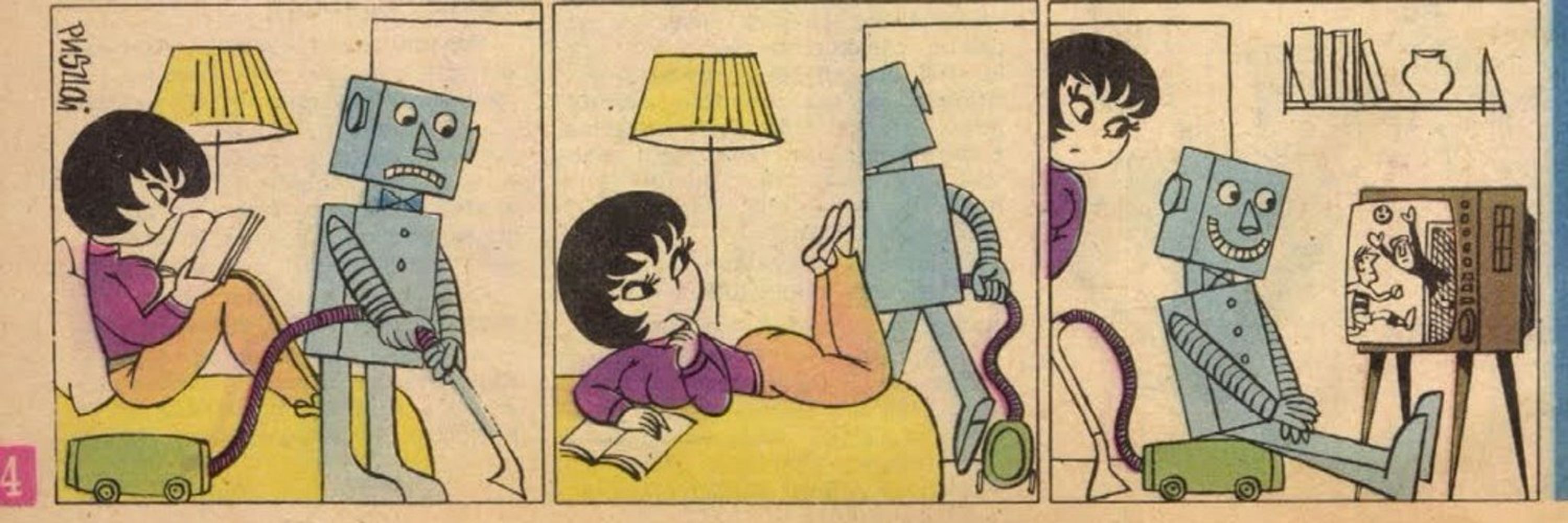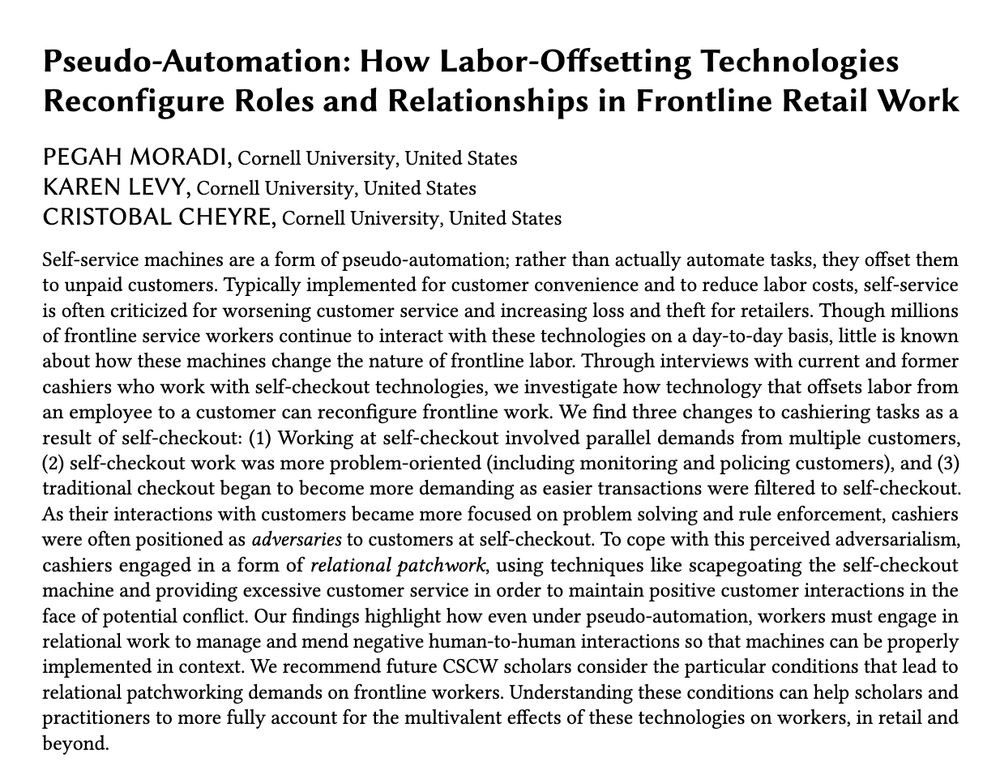Pegah Moradi
@pegahmoradi.bsky.social
51 followers
61 following
10 posts
PhD candidate in Information Science at Cornell studying automation, work, and self-checkout 🛒 https://pegahmoradi.github.io/ (mostly crossposting from @moradipegah on X)
Posts
Media
Videos
Starter Packs
Pegah Moradi
@pegahmoradi.bsky.social
· Aug 1
Sociotechnical Change: Tracing Flows, Languages, and Stakes Across Diverse Cases| “A Fountain Pen Come to Life”: The Anxieties of the Autopen | Moradi | International Journal of Communication
Sociotechnical Change: Tracing Flows, Languages, and Stakes Across Diverse Cases| “A Fountain Pen Come to Life”: The Anxieties of the Autopen
ijoc.org
Pegah Moradi
@pegahmoradi.bsky.social
· Jun 3

The Human in the Loop: Pegah Moradi on Automation, Discretion, and the Future of Frontline Work - Siegel Family Endowment
Pegah Moradi is a PhD candidate in Information Science at Cornell University, where she studies the social and organizational dimensions of digital automation, with a focus on its impacts on work and ...
www.siegelendowment.org
Pegah Moradi
@pegahmoradi.bsky.social
· Mar 12
Sociotechnical Change: Tracing Flows, Languages, and Stakes Across Diverse Cases| “A Fountain Pen Come to Life”: The Anxieties of the Autopen | Moradi | International Journal of Communication
Sociotechnical Change: Tracing Flows, Languages, and Stakes Across Diverse Cases| “A Fountain Pen Come to Life”: The Anxieties of the Autopen
ijoc.org
Reposted by Pegah Moradi
Pegah Moradi
@pegahmoradi.bsky.social
· Jan 23

Pseudo-Automation: How Labor-Offsetting Technologies Reconfigure Roles and Relationships in Frontline Retail Work
Self-service machines are a form of pseudo-automation; rather than actually automate tasks, they offset them to unpaid customers. Typically implemented for customer convenience and to reduce labor cos...
arxiv.org
Pegah Moradi
@pegahmoradi.bsky.social
· Jan 23





![Text from article: Automation may also have unintended social consequences. Pegah Moradi, a PhD candidate and researcher in Information Science at Cornell University, studies automation in retail. “When [an electronic shelf label] breaks down in the store,” she explained, “the worker has to repair the system even if they don’t have the technical expertise. The customer becomes frustrated: There is no price available, or why has the price changed? The burden falls on the employee to alleviate the tension of that situation.” The technology may put employees in the position of performing what Moradi calls “relationship management,” adding social pressure to service jobs but without additional pay or training.](https://cdn.bsky.app/img/feed_thumbnail/plain/did:plc:iuapdbkkbx2nvfqoqksek4re/bafkreihfqzgnucd7rmexljtf674zig7ahjqkkadhdbvdtbwqmgzptin6vy@jpeg)